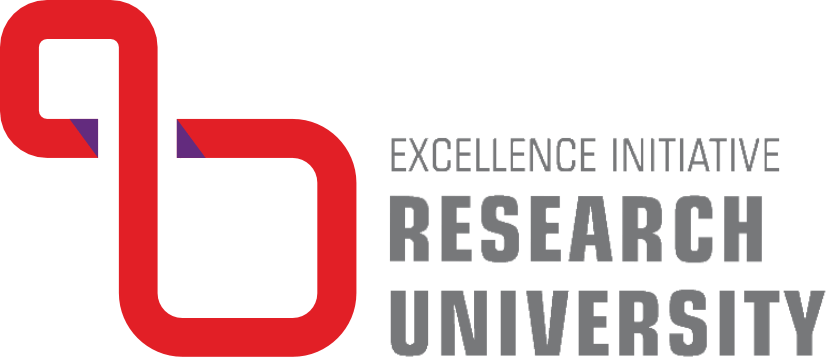Subprojects
Research at the meeting point of literary studies, musicology and sound studies from a posthumanist perspective
coordinator: dr hab., prof. ucz. Piotr Kociumbas (Institute of German Studies, Faculty of Modern Languages)
Taking into account the historical paradigms and tools specific to sound studies, the relationship between literature and music will be explored from a posthumanist perspective.
Categories of weirdness, strangeness and the uncanny in posthumanism and animal studies
coordinator: dr Justyna Schollenberger (Institute of Polish Culture, Faculty of Polish Studies)
Research into the categories of weirdness, strangeness and the uncanny in posthumanist discourse, with the goal of exploring the connections between weirdness and the grotesque as descriptive categories of posthumanist subjectivity (not only human subjectivity) and the character of our relations with others in the context of the foundational works by Charles Darwin.
Literature – Contexts – Posthumanism
coordinator: dr hab., prof. ucz. Joanna Godlewicz-Adamiec (Institute of German Studies, Faculty of Modern Languages)
Research carried out as part of the international research project “Literature – Contexts” (initiated in 2015 and conducted by the Institute of German Studies, University of Warsaw and the Institute of Modern Languages, Pedagogical University of Krakow: dr hab., prof. ucz., Joanna Godlewicz-Adamiec and dr Tomasz Szybisty from the Pedagogical University of Krakow), taking into account contexts from the life sciences. The goal of the double research perspective, which integrates or at least juxtaposes approaches characteristic of literary studies and the life sciences, is to define new areas of scientific exploration, often situated in a “no man’s zone” between specific disciplines. The research takes into account historical paradigms in a posthumanist perspective.
Between dystopia and "insurgent postanthropocentrism": posthumanism from the feminist perspective
coordinators: dr hab., prof. ucz. Katarzyna Moszczyńska-Dürst, dr hab. Karolina Kumor, dr Aránzazu Calderón Puerta (Institute of Iberian and Ibero-American Studies, Faculty of Modern Languages)
Our research interests lie at the intersections of feminism and ecocriticism, feminism and animal studies, and feminism and the critical theory of emotions and affect. The analysis of the relationships between posthumanism and feminism in theory, literature, theater and film; research on posthuman redefinitions of the paradigm of subjectivity and of the concept of agency inscribed in literary texts; analysis of the posthuman theme and dystopia in women´s literary and artistic production.
Ecological subjectivity in the poetry of the self-conscious Anthropocene
coordinators: dr hab. Gerardo Beltrán-Cejudo (Institute of Iberian and Ibero-American Studies, Faculty of Modern Languages), dr hab. Julia Fiedorczuk-Glinecka, dr Maciej Rosiński (both: Institute of English Studies, Faculty of Modern Languages, both)
Research into new forms of subjectivity which emerge from contemporary poetical experiments responding to the challenges of the advancing ecological crisis. This line of research involves the methodologies of environmental humanities, as well as, the exploration of indigenous North American (Mexico, US, Canada) traditions, including oral culture.
(Post-)heritage: critical reflections on the ontology of the heritage of change
coordinator: dr Monika Stobiecka (Artes Liberales Faculty)
An update on the critical terminology of heritage studies which would consider perspectives involving contemporary environmental and socio-cultural realities, as well as, trends in new humanities (posthumanism, transhumanism); developing a methodology and a conceptual framework for critical heritage studies (post-heritage, transheritage, heritagization).
In Search of Non-Western Approaches in Environmental Humanities
coordinators: dr Gabriela Jarzębowska, dr Krzysztof Skonieczny, Aleksandra Brylska (Artes Liberales Faculty)
The project focuses on research and theories concerning the relationship between human beings and the environment which were worked out in non-western cultural context. We understand the adjective “non-western” in two ways. In one general sense “non-western” simply implies alternative towards mainstream theoretical canon, deriving especially from North America and Western Europe. A more narrow understanding of the “non-western” suggests research perspectives applied in local scales. Therefore, one of the main aims of the project is to focus on Eastern-European. This focus entails the presentation of research concerning the environmental history of Easter Europe as well attempting to work out research frameworks which could reflect the local – Polish and Easter European – perspectives on the relationship between human beings and their environments.
Animals and technology / Animals as technology
coordinator: dr hab., prof. ucz. Justyna Włodarczyk (Institute of English Studies, Faculty of Modern Languages)
Analysis of the construction of popular narratives on the relationship of animals and various technologies; from creating a history of the incorporation of animals in the war ‘machine’ to rethinking how the contemporary world continues to rely on the abilities of animals to satisfy a variety of human needs.
